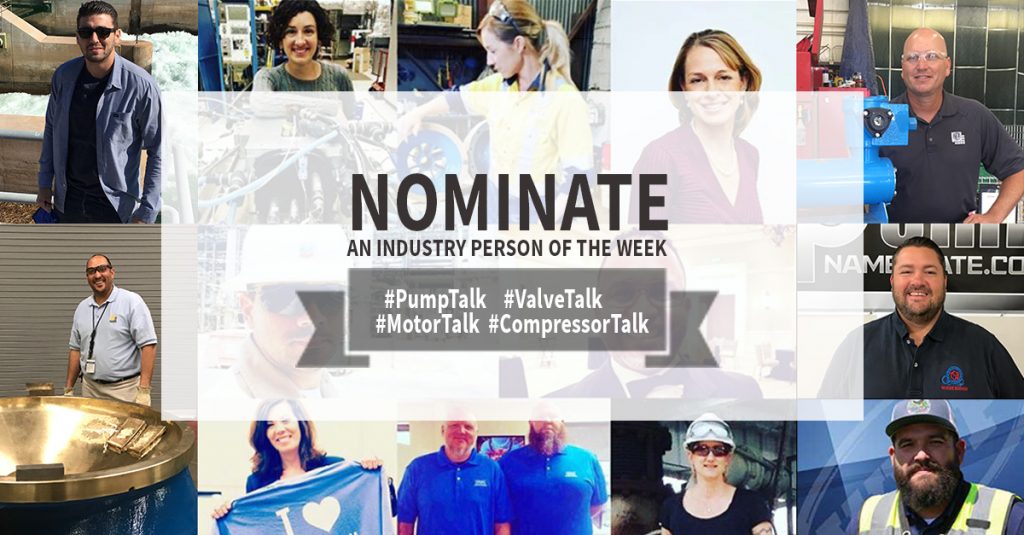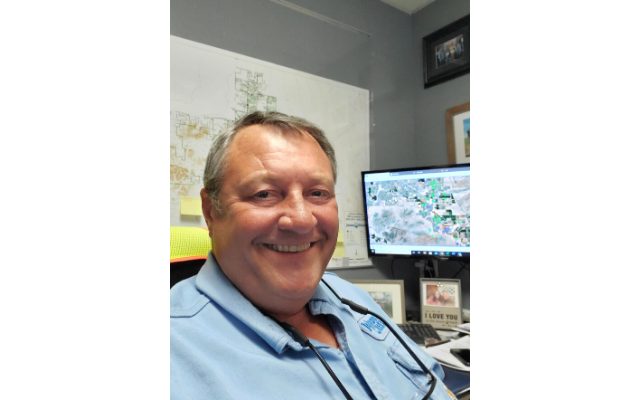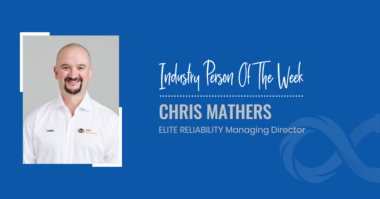Our Industry Person of the Week is Bert Dana, a Foreman with the Wastewater Collection Department for Johnson Utilities. Here is what he had to share!
Q. How did you get started working in your field?
Bert: In January of 2018, I was released from prison after nearly 25 years of incarceration. When my incarceration began, I had an epiphany. As someone who had no record and no understanding of what I would face, I was determined to view each day of imprisonment as an opportunity to learn, grow, prepare myself for life after prison, and I set a goal to accomplish something productive each and every day. Like anything else worth doing, it took creativity and practice. One aspect of my plan was to enroll in programs and college-level coursework. It was in 2002 when I was afforded the opportunity to enroll in a program for water and wastewater treatment. Eight months later and 12 college credit hours, I earned state certification as a Grade One Wastewater Treatment Plant Operator and a Grade One Water Treatment Plant Operator. Because of the custody level of my confinement, it was not until 2015 when I was transferred to minimum security and allowed to work as an operator. I was fortunate to be at a prison complex of five prison yards, housing nearly 5000 inmates. In the year before I was assigned as an operator, The Arizona Department of Corrections built a 1 MGD (million gallons per day) direct-filtration, reverse osmosis plant and a 1MGD activated sludge wastewater treatment plant. Both were within the one-mile square footprint of the prison complex.
With my coursework experience in water and wastewater treatment (but no hands-on experience) I thrived in my new role and absolutely loved the work. Since my coursework and initial certification, I kept and collected textbooks and resource material, studying treatment processes, pumps, and just about anything I could. So when I stepped foot into the WTP & WWTP those first days, I was in my element. I have a passion for the work I do in the industry and always look for the next opportunity and chance to learn. I am also a teacher. Another passion I have which changed how the inmate operators were utilized on the crew. With the help of a good friend, also assigned to the crew, we developed a training program. The undertaking took a few years to get on track and we eventually held a two-hour weekly course in water treatment and distribution, followed by a two-hour weekly course in wastewater treatment and collections. Four hours every Saturday was dedicated to teaching and facilitating the program. After six months, a proctor would come in to provide the state exams allowing myself and our students to earn state certifications. From what I understand, the program continues and has been successful.
Since my release, I have helped several operators find employment. Each and every operator is performing very well and most have gained notoriety, promotions, and more opportunities.
Q. What do you love the most about your job? What are you most proud of?
Bert: I was hired by Johnson Utilities in April of 2018 as a wastewater treatment plant operator. At the time, very few operators at the four WWTPs operated by the utility were state-certified. One reason I was hired was to bring the training program to the utility. In two years, 20 operators have graduated the wastewater course, and 18 operators have graduated the watercourse. These graduates of the program have earned 54 state certifications, with several operators earning grade one certifications across the board. A few of those operators have earned grade two certifications. The remaining are gearing up for their grade two exams.
I have a passion for teaching. I love people. The program I facilitate fulfills me in a way which brings great joy to my life. I also have a passion for my main responsibility at the utility. Eighteen months ago, I was promoted to Foreman of the Wastewater Collection Department. The position and the responsibilities have been a monumental test, and I thrive on the work. My crew has risen to a higher level of performance, and I could not be more proud of the operators I work with. I am proud of the progress we have made as a crew and a department. Our maintenance and operations practices and SOPs has drastically improved. We are looking forward to the steps the department will undergo in the next year, updating our WebGIS to reflect the insane amount of growth in our system, upgrading and renovating the thirty-three lift stations, instituting new protocols and standards for operating the system, and a great deal more.
Q. What advice would you give to someone considering this line of work or new to the field?
Bert: If you enjoy the challenge of learning something new every day, you are in the right field. Learn the WHY. Understand why treatment processes work to better understand how an operator influences the efficiency of the process. Find people in the industry, ideally where you are employed, who will invest in your development. Appreciate our position in the community as an Essential Worker who must keep the water safe and flowing so others can depend on the product we deliver and focus on other matters.
Q. Can you talk about a project you recently worked on?
Bert: One of our recent and on-going projects is replacing the hydrorangers used for level measurement in the wet wells at lift stations with the FMR20, a radar level sensor which has proven to be more accurate and reliable. Coupled with a PLC, and the right programming, we eliminate all but the HIGH HIGH float in the wet well. Fewer components to attract mopheads.
Q. Anything else you would like to add?
Bert: I am grateful to work in an industry full of opportunity. I look forward to the future and the development of new, innovative technologies. I am proud to work in an industry with the first responsibility to protect the health and safety of the public.
Thank you, Bert! We look forward to keeping up with you through the #PumpTalk Community!
Know an Amazing Person who is making valuable contributions within Industry? Nominate them to be an “Industry Person of the Week”!





